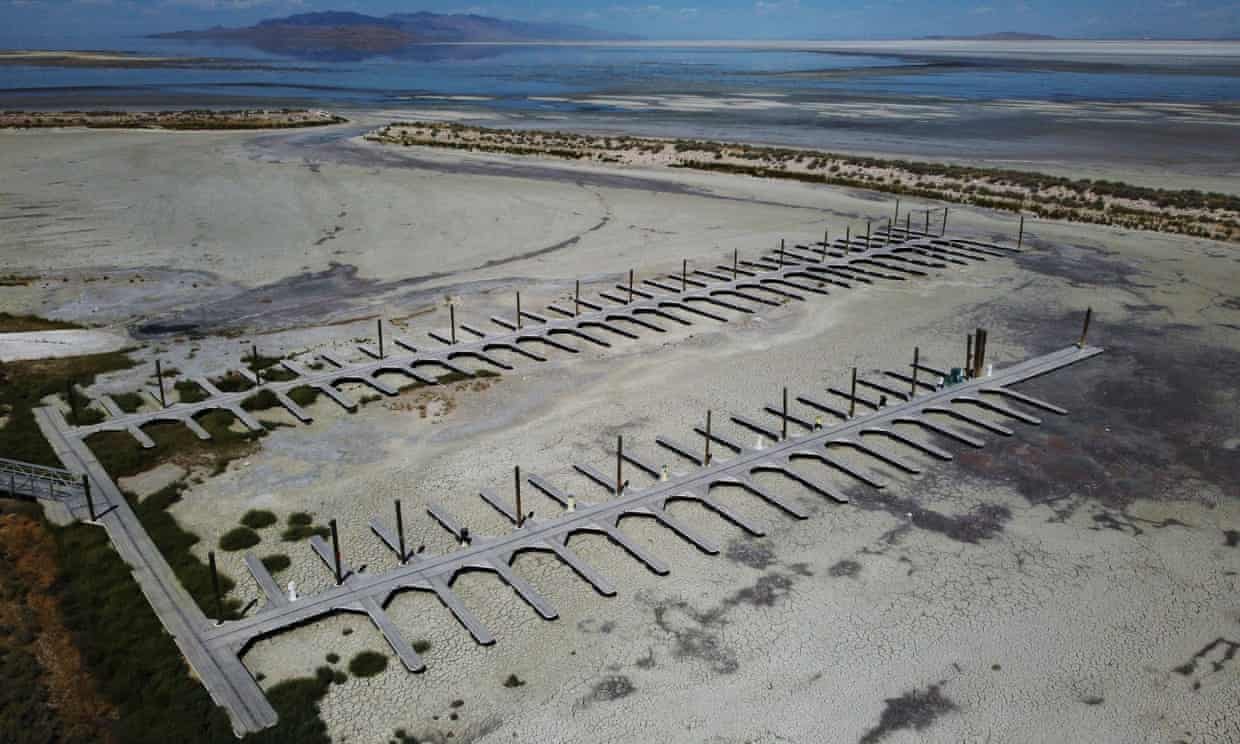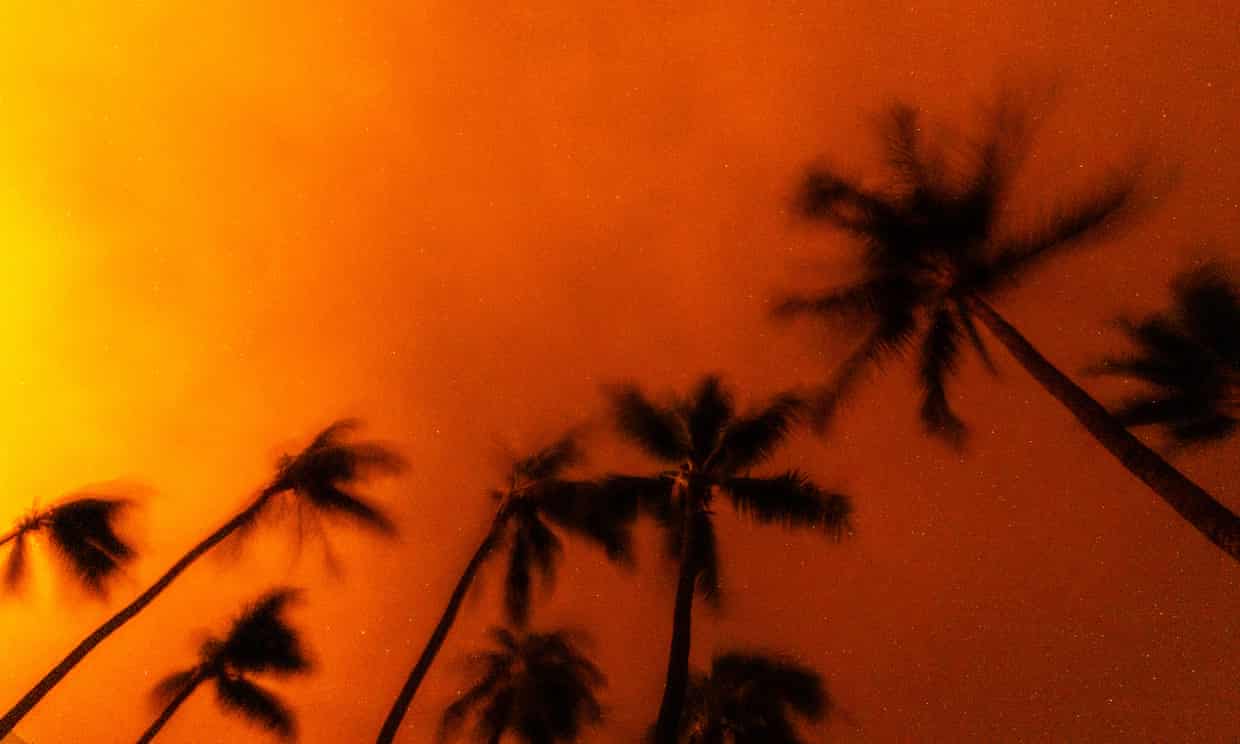 Environmental and community groups have sued Utah officials over failures to save its iconic Great Salt Lake from irreversible collapse.
Environmental and community groups have sued Utah officials over failures to save its iconic Great Salt Lake from irreversible collapse.
The largest saltwater lake in the western hemisphere has been steadily shrinking, as more and more water has been diverted away from the lake to irrigate farmland, feed industry and water lawns. A megadrought across the US south-west, accelerated by global heating, has hastened the lake’s demise.

 Environmental Glance
Environmental Glance It’s been a strange, cruel summer in the United States. From the dystopian orange skies above New York to the deadly immolation of a historic coastal town in Hawaii, the waning summer has been a stark demonstration of the escalating climate crisis – with experts warning that worse is to come.
It’s been a strange, cruel summer in the United States. From the dystopian orange skies above New York to the deadly immolation of a historic coastal town in Hawaii, the waning summer has been a stark demonstration of the escalating climate crisis – with experts warning that worse is to come.

 South Korean opposition lawmakers sharply criticized the head of the United Nations' nuclear watchdog on Sunday for its approval of Japanese plans to release treated wastewater from the damaged Fukushima nuclear power plant.
South Korean opposition lawmakers sharply criticized the head of the United Nations' nuclear watchdog on Sunday for its approval of Japanese plans to release treated wastewater from the damaged Fukushima nuclear power plant.
 Ask Britain’s foreign secretary which part of the world poses his biggest foreign policy challenge, and the chances are he will say either
Ask Britain’s foreign secretary which part of the world poses his biggest foreign policy challenge, and the chances are he will say either  The company 3M, which has been a major manufacturer of what are known as “forever chemicals,” is staring down what could be a test case for whether it faces liability for water contamination caused by the toxic substances.
The company 3M, which has been a major manufacturer of what are known as “forever chemicals,” is staring down what could be a test case for whether it faces liability for water contamination caused by the toxic substances.






























